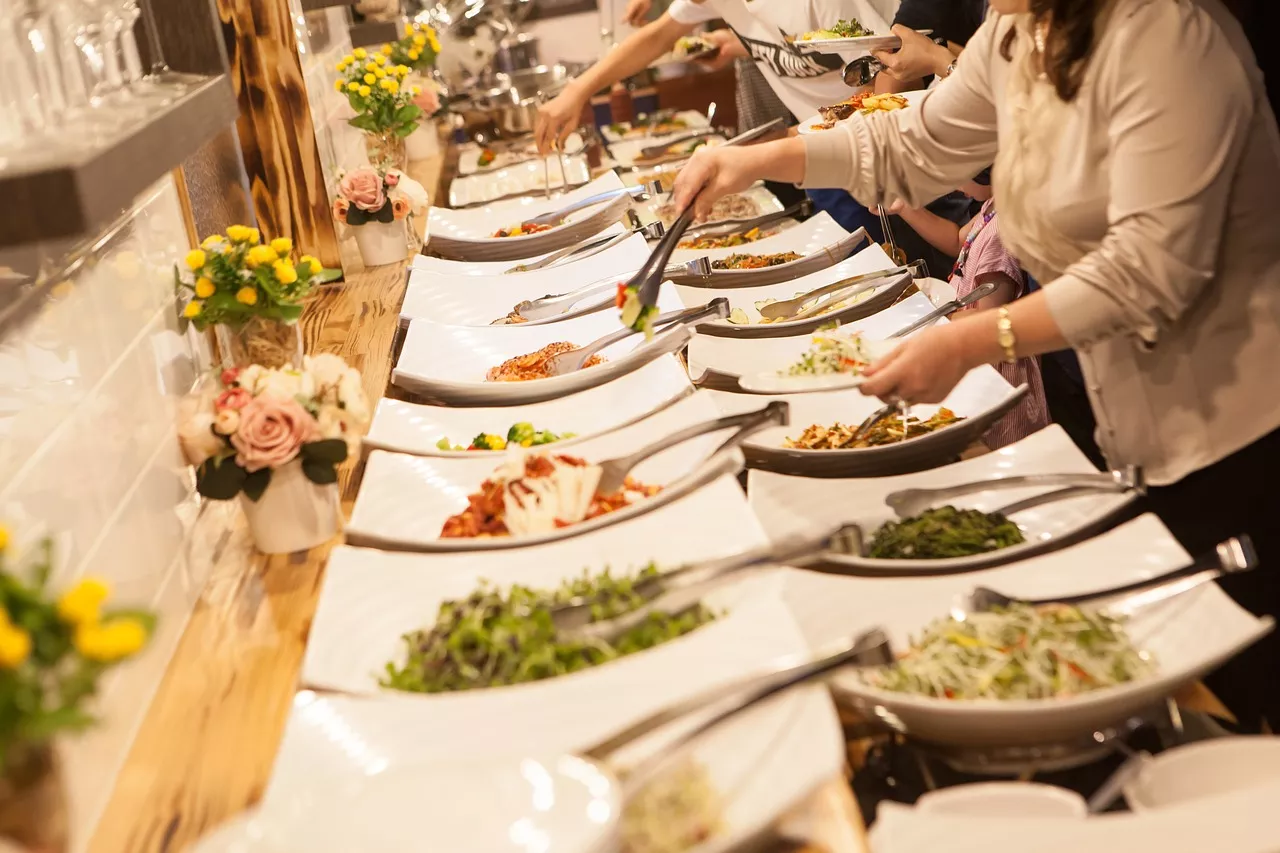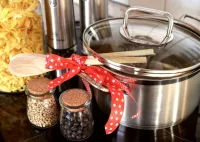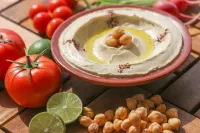The Importance of Menu Planning
Menu planning is the foundation of any successful catering event. It sets the tone for the entire experience and helps you organize your culinary creations. When planning your menu, consider the occasion, the season, and the preferences of your guests. Are they meat lovers, vegetarians, or seafood enthusiasts? It's essential to strike a balance and offer a variety of options to cater to everyone's taste buds.
Additionally, think about the flow of the meal. Start with light appetizers to whet the appetite, followed by a refreshing salad or soup. For the main course, offer a selection of proteins, such as chicken, beef, or fish, paired with complementary sides. Don't forget to include vegetarian and vegan options for those with dietary restrictions. Finally, end the meal on a sweet note with a decadent dessert selection.
Tips for Selecting the Right Ingredients and Suppliers
The quality of your ingredients can make or break a dish. To ensure you're serving the best, it's essential to choose reputable suppliers who provide fresh and high-quality produce, meats, and seafood. Research local farmers' markets and specialty stores in your area to find the best ingredients available. Building relationships with suppliers will not only guarantee the quality of your ingredients but also open doors to new and unique products.
When selecting ingredients, consider the seasonality and availability of certain produce. Opting for seasonal ingredients will not only enhance the flavor of your dishes but also support local farmers and reduce your carbon footprint. Experiment with different flavors and textures to create a harmonious balance in your dishes. Don't be afraid to try new ingredients and techniques – it's all part of the culinary journey!
Preparing and Organizing Your Kitchen Space
A well-organized kitchen is the backbone of any successful catering event. Before you start cooking, ensure your kitchen is clean and clutter-free. Create designated spaces for each ingredient, utensil, and tool to streamline your workflow. Invest in storage containers, labeling systems, and shelving units to maximize your kitchen's efficiency.
It's also crucial to prepare your mise en place, a French culinary term meaning "everything in its place." This involves prepping and measuring all the ingredients before you start cooking. Chop vegetables, measure spices, and marinate proteins in advance. This will not only save you time during the event but also allow you to focus on the cooking process and ensure everything is executed flawlessly.
Essential Equipment and Tools for Catering
Having the right equipment and tools is essential for any aspiring culinary pro. Invest in high-quality cookware, including pots, pans, and baking sheets, to ensure even heat distribution and prevent food from sticking. A sharp set of knives is also crucial for precise cuts and efficient prep work.
Other essential tools include mixing bowls, measuring cups and spoons, a blender or food processor, and various utensils such as spatulas, tongs, and whisks. Make sure to stock your kitchen with an array of spices, herbs, and condiments to elevate the flavor of your dishes. Lastly, don't forget about presentation – invest in elegant serving platters, plates, and glassware to create a visually stunning dining experience.
Food Presentation and Plating Techniques
They say we eat with our eyes first, and this couldn't be truer when it comes to catering. Presentation is key to creating a memorable dining experience. Take the time to plate your dishes thoughtfully, considering color, texture, and arrangement. Use garnishes, edible flowers, and sauces to add a pop of color and enhance the visual appeal.
When plating, remember the rule of thirds – divide the plate into three sections and arrange your protein, starch, and vegetable accordingly. Create height and dimension by stacking or layering elements. Pay attention to the balance of flavors and textures – each bite should be a harmonious combination of tastes and mouthfeel.
Managing and Coordinating Staff During Events
Catering events often require a team effort. As a culinary pro, it's crucial to effectively manage and coordinate your staff to ensure a smooth operation. Assign specific roles and responsibilities to each team member, whether it's cooking, plating, or serving. Clearly communicate expectations and provide training if needed.
During the event, maintain open lines of communication with your staff to address any issues or challenges that may arise. Encourage teamwork and create a positive work environment to keep morale high. Remember, a happy and well-coordinated team will reflect in the quality of the food and the overall guest experience.
Handling Dietary Restrictions and Special Requests
In today's culinary landscape, it's essential to accommodate dietary restrictions and special requests. Whether it's gluten-free, vegan, or allergies, it's crucial to take these considerations into account when planning your menu. Be proactive and ask guests for their dietary preferences and restrictions in advance.
When designing dishes, ensure there are options available for everyone. Experiment with alternative ingredients and cooking techniques to create delicious and inclusive dishes. Clearly label each dish with any relevant allergen information to keep your guests informed and safe.
Tips for Effective Event Management and Timeline Planning
Successful catering events require meticulous planning and organization. Start by creating a detailed timeline that outlines each task and its corresponding deadline. This will help you stay on track and ensure everything is executed smoothly.
Consider the logistics of the event, such as the number of guests, the venue, and the equipment needed. Create a checklist of all the necessary items and ensure they are prepared and ready for the event. Allow for extra time for unforeseen circumstances, such as traffic or last-minute changes.
During the event, delegate tasks to your team and oversee the execution. Stay calm and adaptable, as things may not always go according to plan. Be prepared to troubleshoot and make quick decisions to ensure the event runs seamlessly.
Conclusion and Final Thoughts on Catering Success
Becoming a culinary pro in the world of catering takes time, practice, and dedication. By following these tips, you'll be well on your way to impressing your guests with your culinary creations. Remember to prioritize menu planning, select the best ingredients, organize your kitchen, and invest in the right tools. Master the art of food presentation and plating, manage your staff effectively, and accommodate dietary restrictions.
Above all, enjoy the journey and embrace the challenges. Catering is an ever-evolving field, and there's always something new to learn. With passion, creativity, and a commitment to excellence, you can wow your guests and create unforgettable dining experiences. So, put on your chef's hat, grab your apron, and let's get cooking!

 A Quick and Easy Guide to Cooking Fast Food at Home
A Quick and Easy Guide to Cooking Fast Food at Home Homemade Hummus Tips and Tricks for the Perfect Blend
Homemade Hummus Tips and Tricks for the Perfect Blend



